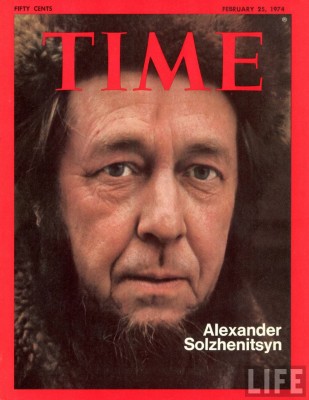Dear readers: I recalled correctly from my Russian studies a half century ago that Soviet leaders had stuck Russian territories into Ukraine, but I mistakenly attributed all of the transfers to Khrushchev. The first gifts of Russian territory to Ukraine were made by Lenin.- Paul Craig Roberts

The “discovery” of famous dissidents like Solzhenitsyn was a boon for American anti-Soviet propaganda. But, being quirky and complex, Solzhenitsyn who was an old-fashioned Russian nationalist, eventually proved too difficult to exploit and even “counterproductive.” He was quietly dropped from the news.
The New Russia
An Interview With Aleksandr Solzhenitsyn,” by Paul Klebnikov, in the May 9, 1994, issue of Forbes magazine
With Russia in chaos, it does sound a bit far-fetched to see her as an aggressor.
Russia today is terribly sick. Her people are sick to the point of total exhaustion. But even so, have a conscience and don’t demand that–just to please America–Russia throw away the last vestiges of her concern for her security and her unprecedented collapse. After all, this concern in no way threatens the United States.
Former U.S. National Security Adviser Zbigniew Brzezinski disagrees. He argues that the U.S. must defend the independence of Ukraine.
In 1919, when he imposed his regime on Ukraine, Lenin gave her several Russian provinces to assuage her feelings. These provinces have never historically belonged to Ukraine. I am talking about the eastern and southern territories of today’s Ukraine.
Then, in 1954, Khrushchev, with the arbitrary capriciousness of a satrap, made a “gift” of the Crimea to Ukraine. But even he did not manage to make Ukraine a “gift” of Sevastopol, which remained a separate city under the jurisdiction of the U.S.S.R. central government. This was accomplished by the American State Department, first verbally through Ambassador Popadiuk in Kiev and later in a more official manner.
Why does the State Department decide who should get Sevastopol? If one recalls the tactless declaration of President Bush about supporting Ukrainian sovereignty even before the referendum on that matter, one must conclude that all this stems from a common aim: to use all means possible, no matter what the consequences, to weaken Russia.
Why does independence for Ukraine weaken Russia?
As a result of the sudden and crude fragmentation of the intermingled Slavic peoples, the borders have torn apart millions of ties of family and friendship. Is this acceptable? The recent elections in Ukraine, for instance, clearly show the [Russian] sympathies of the Crimean and Donets populations. And a democracy must respect this.
I myself am nearly half Ukrainian. I grew up with the sounds of Ukrainian speech. I love her culture and genuinely wish all kinds of success for Ukraine–but only within her real ethnic boundaries, without grabbing Russian provinces.






